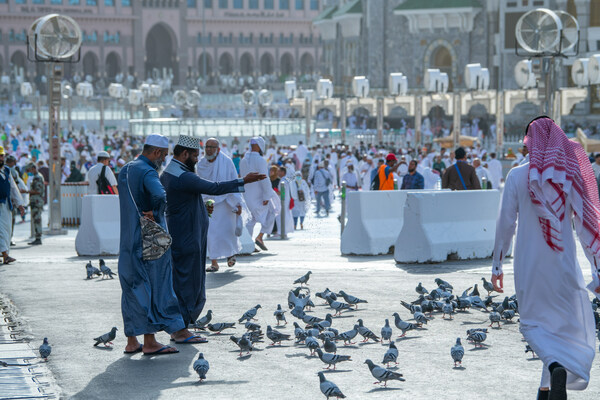 |
| Source: KSA Ministry of Hajj and Umrah. Pilgrims at the holy sites. |
Proactive planning has historically allowed KSA to avoid food supply
shortages, including during the second Gulf War in 1990, the food price
crisis in 2008, and the deterioration of food supply chains in 2021 due
to the coronavirus pandemic.
This year, products from 1,294 food factories in KSA will secure more than 120 million meals for at least 2 million pilgrims in six days under the supervision of the KSA Ministry of Hajj and Umrah.
KSA's strategy to achieve food security involves 11 programmes,
including the Saudi Agricultural Investment Abroad Program, with the
Saudi Agricultural and Livestock Investment Company (SALIC) completing a
SR4.65 B acquisition of 35.43% of Singapore's Olam Agri company in
December 2022, in addition to the acquisition of two meat processing
factories in Australia.
Investment in food manufacturing amounts to about 7% of the total investments made in the Saudi industrial sector, and more than SR94 B has been invested to operate 11.35% of the factories in KSA, according to official data.
KSA has a megaproject to increase its vegetation cover, which has effectively contributed to achieving self-sufficiency in agricultural products such as dates with a sufficiency rate of 125%, and vegetables whose sufficiency rates have reached 87%. This is in addition to possessing the Middle East's largest wheat and flour storage capacity, with a daily milling capacity of 3.3 million tons.
Water security is also a priority. KSA currently engages in seawater desalination and manages 563 dams. Another 1,000 new dams to enhance the utilisation of rainwater are planned.